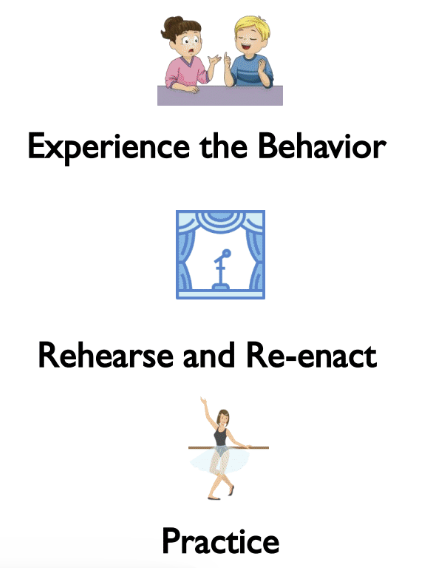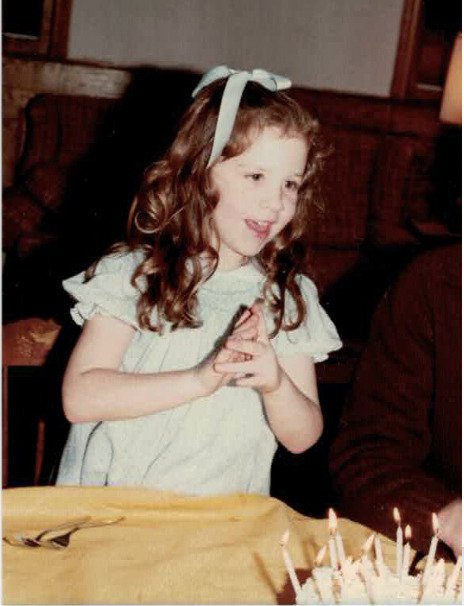7 Social Skills Games Parents & Teachers Can Play to Help Kids Who Are Falling Behind

Social skills games encourage children to join in, cooperate, take turns, understand social expectations, meet playmate expectations, and recognize inappropriate behavior. Helping your child develop social skills can make a lasting positive impact on their life. People with good social skills often know what to say when, how to behave in a variety of situations, and how to make good choices.
Many children learn about norms and acceptable behaviors through their everyday social interactions with parents, teachers and peers; however, some children need more direct social skill instruction.
How Can Social Skills Games Help?
We use our social skills every day to communicate and interact in society, both verbally and non-verbally. Good social skills help everyone successfully interact in social situations, build positive relationships and have a better self-image.
The Best Social Skills Games Help Improve:
- dealing with teasing, losing
- listening
- following instructions and rules
- ignoring distractions
- cooperating
- competing
- using manners
- showing empathy, Thinking about the other’s point of view
- self-advocating, asking for help, permission
- waiting your turn
- making responsible decisions
- anticipating other people’s actions
7 Fun Social Skills Games to Build Social Development
Parents, teachers, school counselors, psychologists, and speech/language pathologists can implement these social skills games. These activities can be performed one-on-one or in a group setting and are a great way to bond with your child/student(s).
Simon Says
Call out simple commands like “Simon says, touch your nose,” and demonstrate the command yourself. As long as you say “Simon says,” your child has to hear and react to you.
Social skills practiced with this activity include: self-control, listening, impulse control, following instructions, focus
Scavenger Hunts
Children work together to find objects or get a prize. Start by saying, “Find a hat, a duck and a book and bring them back to me.” If your child has trouble following multiple directions at a time, you can start with one item and gradually add more. Ask her to repeat the instructions back to you. Next time, teach her to repeat the instructions back to herself. This life lesson will help her manage distractions. If your child becomes distracted, use a clear short directive to bring their attention back to the instructions (e.g.,”How are you doing with the book?”).
Social skills practiced with this activity include: teamwork, organization, problem-solving, decision-making, listening, following directions, taking turns, and cooperating.
Telling Short Stories
After your child shares a story with you, show you were listening by summarizing what she said. Ask questions and show empathy if needed. Ask him to do the same when it is his turn. To practice ignoring distractions, play the game in an high-distractions area, such as a busy park. Remind your child that when she is listening to the teacher, he may have to ignore distractions. If your child becomes distracted, use clear short directives to bring his attention back to you (e.g.,”Please go on, I’d like to hear more”.)
Related Content:
TMI. Are you sharing too much information? How to tell a tight story.
For kids who tend to ramble, set a timer or limit each person to two to five minutes.
Social skills practiced with this activity include: listening, following directions, taking turns, ignoring distractions, cooperating, and showing empathy.
Polite Pretend
Kids create a scenario in which they pretend to be someone else; a doctor, teacher, cashier, parent, waiter. Focus on scenarios in which manners should be used and have your child practice being courteous and polite. Purposely say a statement in a discourteous way and ask your child to repeat them, only this time politely using phrases such as please, thank you and have a nice day.
Skills practiced with this activity include: using manners, cooperating, asking for help, following directions, and taking turns. learn to recognize and respond to emotions, listen, de-escalate situations, and adapt to new situations.
Recommended Article: 10 ways to teach your child social skills in daily life
Building Blocks
Set some ground rules at the start to encourage kids to cooperate and work in unison as they design and build a tower of blocks.
Recommended reading: Building the Tower, pg 209 in Why Will No One Play with Me?
Skills practiced with this activity include: collaboration, effort, taking turns, keep trying, understand and celebrate each other’s unique abilities.
Board Games, Cards
Board games such as Monopoly and Life are especially helpful in teaching children who have trouble losing, how to do so gracefully. Practicing losing at home will help prepare them for when they lose at school or on the sports field. When your child loses, be empathetic and say something soothing, such as, “It can be hard for all of us to lose sometimes, but there will be other opportunities.” It is important that the child understand that losing – and winning – is part of everyone’s life. Set a good example for when things don’t go your way, too. Keep practicing. The more opportunities they have to lose, the better they will become at accepting a loss.
Social skills practiced with this activity include: cooperating with others, listening, following directions, waiting one’s turn, dealing with losing, expressing feelings, developing empathy, playing with others, and more.
Recommended reading: Good Winner, Good loser, pg 240-242 in Why Will No One Play with Me?
Free download: Good Winner, Good Loser video – Learn how to help the child who struggles with self-regulation expand his or her self-awareness.
Debate
Studying topics, forming an opinion, debating and listening to opponents help develop the social skills needed to become thoughtful leaders.
Social skills practiced with this activity include: Managing emotions, engaging in difficult conversations and feelings calmly, building friendships, speaking well and with confidence, listening with interest and understanding, gaining insight from others, developing complex ideas into words, respecting the views of others, accepting differences and developing compassion.
Related products:
Do Not Try to Pressure
Keep in mind that the activities are recommendations and should be tailored to a child’s age and capabilities. Pressure can lead to frustration, which can turn your child off to social skills practice.
Do your best to stay calm and to show vs. tell. In these games, we are showing – not telling – children how to understand the social world.
Typically, first grade is when kids generally start understanding how to play games with rules. Keep the sessions short (start at 5 to 10 minutes for younger children or children who get easily frustrated), unless the child is eager to keep going.
Most importantly, enjoy these social skills games with your children. Fun can be informative too!
Social Skills in Action:
Become your best self: socially engaged, confident, and open to the unlimited world of learning and connection.
More actionable advice, exercises and videos can be found in the Store
How to Deal With Rejection Sensitivity
Don’t wait to seek help. Trust your gut
Building social capital is critical for strong relationships. ADHD can get in the way.
How to Coach Your Child – Kids need good role models. Skills like listening and communication are critical. This exclusive program for parents teaches how to coach your kids for life.
Rusty Social Skills Bundle – Everything you need to help students return to the classroom for the development of critical social skills.
Coaching Conversations Video Course – How to use the lessons in Why Will No One Play with Me? in everyday life using real people and real scenarios
From “Hi” to a Full Conversation – How to adapt conversation starters to initiate small talk.
Joining a group Infographic – Make joining a group less intimidating – and more fun!
Building a Conversation Infographic – Learn how to engage in reciprocal give-and-take
Steps for Joining a Group Video – Step by step details to comfortably and successfully join a group
How to Read the Room as an Adult – Managing perceptions and engaging successfully
How to SEL – HOW TO help children build social skills



